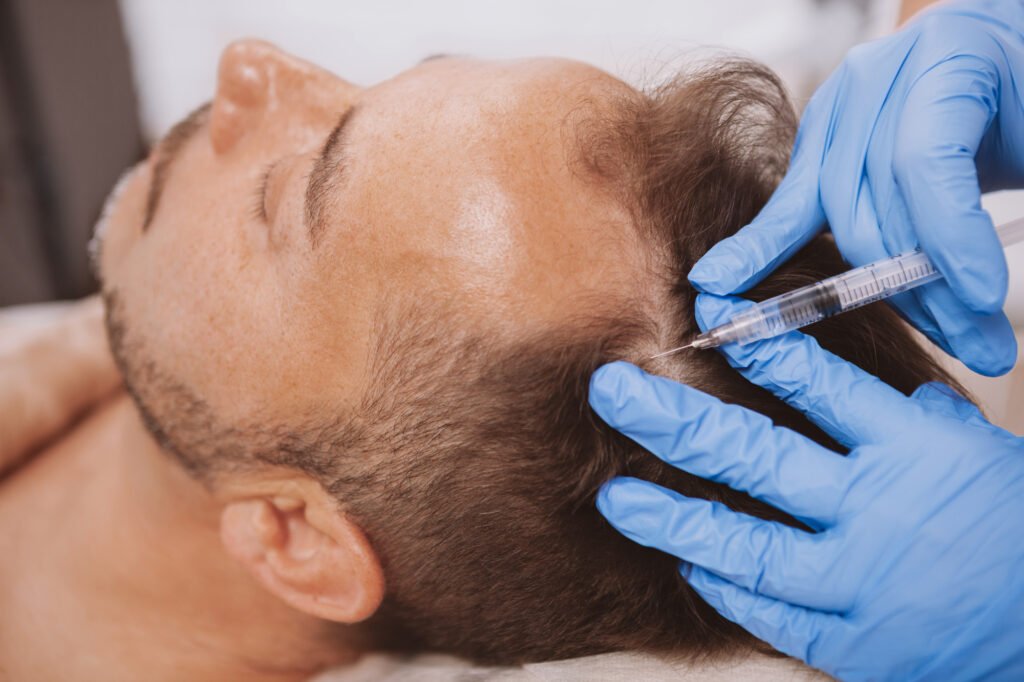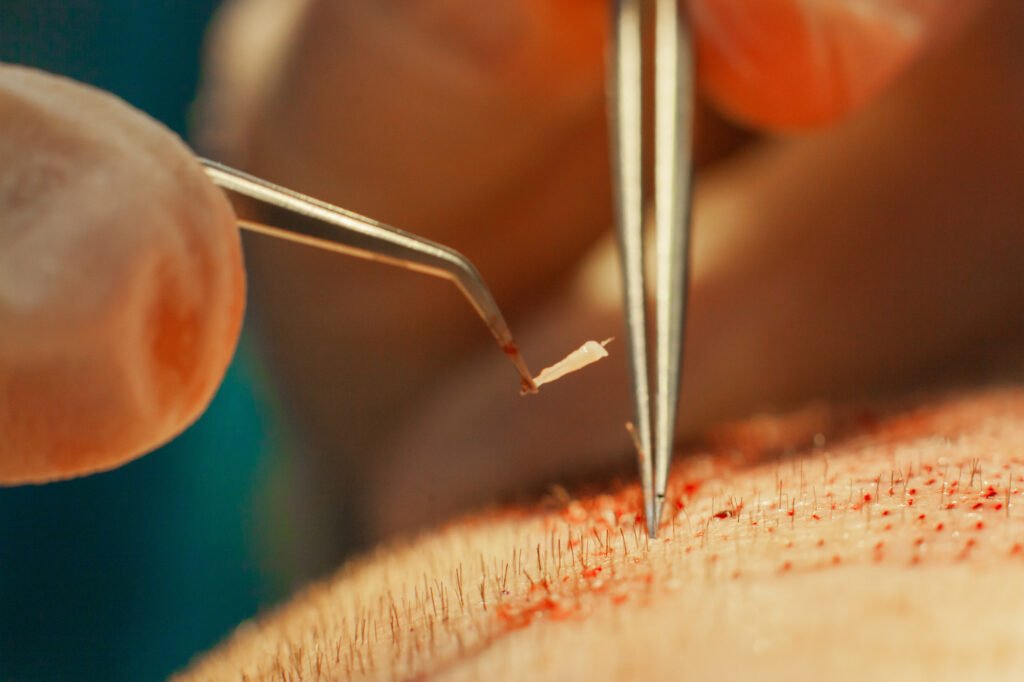Hair loss, a common concern for both men and women, can significantly affect self-esteem and confidence. Various factors, such as genetics, hormonal changes, or specific medical conditions, may cause hair loss. Many individuals thus seek effective ways to regrow hair and restore a fuller, healthier appearance.
Though the market abounds with products and treatments promising miraculous results, it’s crucial to focus on proven methods. This article will delve into scientifically supported approaches to hair regrowth, offering practical and reliable strategies to address hair loss, potentially restoring the lush locks you desire.
Medical Treatments And Natural Remedies For Hair Regrowth
While there isn’t a magical cure for hair loss, several medical interventions and natural remedies have demonstrated their ability to stimulate hair growth, improving the thickness and quality of hair.
- Hair Transplantation
Hair transplantation is a surgical procedure that restores hair growth in areas affected by baldness or thinning. The process involves taking small strips of healthy hair from the back and sides of the scalp, known as donor sites, and transplanting them onto bald or thinning patches. The transplanted follicles then take root in the new area and continue to grow throughout a lifetime.
Two main techniques used during a hair transplant are follicular unit extraction (FUE) and follicular unit strip surgery (FUSS). Both methods are minimally invasive, with little downtime required afterward, but may necessitate multiple sessions over time to achieve desired results.
However, unsatisfactory results follow previous hair transplantation, a hair transplant repair procedure may be necessary. This cosmetic surgery aims to achieve a more natural-looking and desirable outcome than the initial procedure.
- Topical Treatments
Topical treatments can assist in the restoration of hair growth. These treatments, which include solutions, creams, and lotions containing minoxidil or salicylic acid, are applied directly to the scalp.
Minoxidil, an over-the-counter medication primarily used for treating hair loss, has also proven effective in promoting new hair growth. Salicylic acid works by unblocking pores and increasing scalp circulation, promoting healthy hair growth. Certain essential oils like lavender, peppermint, and rosemary have also been found to stimulate hair follicles, enhancing growth.
- Oral Medications
Oral medications containing finasteride and biotin, can provide an additional method of stimulating hair regrowth. Finasteride, a synthetic drug, inhibits the enzyme 5-alpha reductase, which converts testosterone into dihydrotestosterone (DHT). By blocking this action, finasteride reduces DHT levels in the scalp and can help reduce or even reverse male pattern baldness.
- Platelet-Rich Plasma (PRP) Therapy
Platelet-Rich Plasma (PRP) Therapy is an innovative approach to hair restoration that uses the patient’s platelets to stimulate hair growth. The treatment involves drawing a small amount of blood from the patient, separating it into its components, and injecting the concentrated platelets into balding or thinning areas of the scalp. This stimulates new cell growth in the area, leading to thicker, healthier hair growth.
- Scalp Massage
Scalp massage, an effective technique for promoting hair growth, can be done at home either independently or with a partner’s help. The process involves gently rubbing, kneading, and stroking the scalp in circular motions for a few minutes daily as part of a regular hair care routine. It improves circulation, strengthening hair follicles and strands.
- Essential Oils
Essential oils, an ancient remedy used worldwide for centuries in traditional medicine and beauty rituals, are extracted from plants such as lavender, rosemary, cedarwood, and peppermint.
Research shows that certain essential oils can stimulate hair growth when applied topically or when ingested. Studies have demonstrated that cedarwood, jojoba, and rosemary oil effectively promote hair health by nourishing the follicles naturally and reducing inflammation associated with alopecia or pattern baldness.
- Nutritional Supplements
Nutritional supplements are another potential option for those interested in promoting hair health. These supplements, based on the premise that many dietary deficiencies can contribute to hair loss, aim to replenish these nutrients to support healthy hair growth. Many individuals use vitamins, minerals, and other nutritional ingredients, such as biotin to improve their overall scalp health.
Moreover, a deficiency in zinc has been linked to baldness, so taking zinc supplements can be beneficial. Omega-3 fatty acids, with their antioxidant properties, can protect against environmental stressors like sun exposure and pollution that harm the scalp and inhibit hair growth.
- Herbal Remedies
For centuries, herbal remedies have been used to treat various scalp conditions and promote hair health. Herbs like saw palmetto, rosemary, and stinging nettle are rich in natural compounds that nourish the scalp and stimulate hair growth.
Saw palmetto can block the conversion of testosterone into DHT, which is thought to be responsible for male pattern baldness. Rosemary contains antioxidants that protect the scalp from oxidative stress caused by environmental factors, such as pollution and UV light exposure.
Conclusion
Hair loss can be a frustrating and concerning issue for many individuals, impacting their self-esteem and overall well-being. However, through extensive research and scientific advancements, several proven methods for hair regrowth have emerged. With the support of healthcare professionals and a tailored approach based on individual needs, regaining hair growth and boosting self-confidence is achievable. By exploring these proven ways to regrow hair, you can take control of your hair loss journey and embark on a path towards revitalized, vibrant locks.





